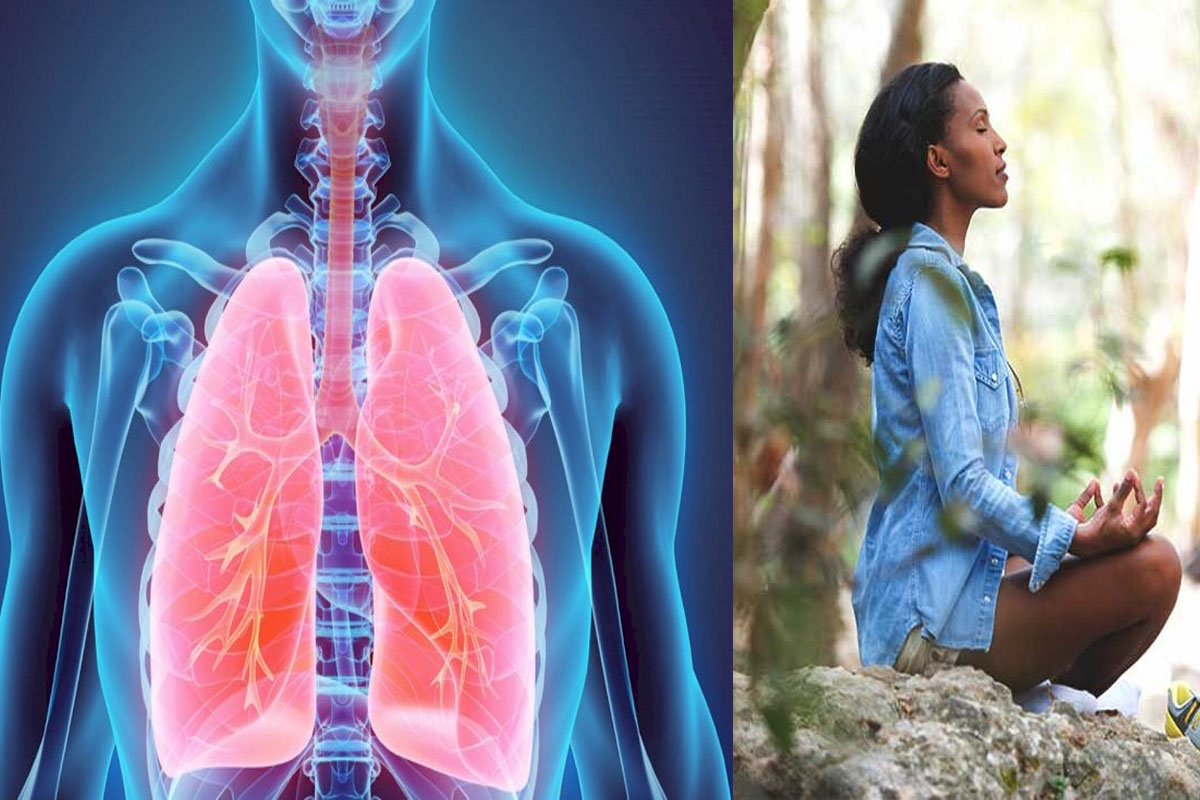
Our lungs are amazing organs. They work tirelessly every second. We often take them for granted. Improving lung capacity is beneficial. It enhances overall health. This can be done naturally. Let’s explore effective methods.
Enhances Overall Health
Better lung capacity means more oxygen. This fuels all body systems. Every cell needs oxygen to thrive. Increased oxygen improves energy levels. It boosts cognitive function. Our endurance also gets better. A healthy respiratory system is foundational.
The Basics of Lung Function
Lungs are like sponges. They fill with air. Oxygen passes into the blood. Carbon dioxide leaves the blood. This exchange is vital for life. Diaphragm and intercostal muscles power breathing. Stronger muscles mean deeper breaths.
Diaphragmatic Breathing Techniques
Most people breathe shallowly. They use their chest muscles. Diaphragmatic breathing is different. It uses the diaphragm fully. This muscle sits below the lungs. Lie down, place hand on stomach. Breathe deeply, feel stomach rise. This expands lung volume effectively. Practice this often.
Regular Aerobic Exercise
Aerobic exercise strengthens lungs. Running, swimming, cycling are great. They make your heart pump faster. Your lungs work harder to supply oxygen. This regular demand improves their efficiency. Start slowly and build up intensity. Consistency is absolutely key.
Yoga and Pilates Benefits
These practices focus on breath. Yoga integrates specific breathing exercises. Pranayama techniques are powerful. Pilates emphasizes core strength. A strong core supports the diaphragm. Both improve flexibility too. This allows fuller chest expansion.
Practicing Deep Breathing Regularly
Don’t wait for exercise. Integrate deep breaths into your day. Take a few deep breaths hourly. Inhale slowly through your nose. Exhale fully through your mouth. This simple habit makes a difference. It can calm your nervous system too.
Posture Plays a Role
Slouching restricts lung movement. Good posture allows full expansion. Sit or stand up straight. Keep your shoulders back and down. Your chest should feel open. This simple change is surprisingly effective. Check your posture often.
Singing Can Strengthen Lungs
Singing is a powerful exercise. It encourages deep breaths. It makes you hold notes longer. This trains your lung muscles. Join a choir or sing alone. Any style of singing helps. It’s a fun way to improve capacity.
Playing Wind Instruments
Learning an instrument is rewarding. Flutes, clarinets, trumpets are examples. They require controlled airflow. This strengthens respiratory muscles. It improves breath control over time. It’s a structured way to practice.
Avoiding Air Pollutants
Poor air quality harms lungs. Smoke, dust, chemicals irritate them. Avoid smoking altogether. Limit exposure to secondhand smoke. Use air purifiers indoors. Wear masks in polluted areas. Clean air protects lung health.
Staying Hydrated Daily
Water keeps airways moist. Mucus stays thin and easy to clear. Dehydration can thicken mucus. This makes breathing harder. Drink plenty of water throughout the day. Herbal teas can also count. Hydration supports overall lung function.
Nutritional Support for Lungs
A healthy diet helps lung health. Antioxidants are important. Vitamins C and E are beneficial. Colorful fruits and vegetables provide them. Omega-3 fatty acids reduce inflammation. Found in fish and flaxseeds. A balanced diet strengthens immunity.
Nasal Breathing Advantages
Breathing through your nose is better. The nose filters air. It warms and humidifies air. This protects your delicate lungs. Mouth breathing is less efficient. It can dry out airways. Practice nasal breathing consciously.
Gradual Intensity Progression
Don’t overdo it too soon. Pushing too hard can be harmful. Gradually increase exercise intensity. Add more repetitions to breathing drills. Listen to your body always. Improvement takes consistent effort. Be patient with yourself.
Breathing Exercises for Specific Conditions
Certain conditions benefit greatly. Asthma patients learn control. COPD patients improve efficiency. These exercises are tailored. A doctor or therapist guides them. Always follow medical advice.
The Benefits of Outdoor Activities
Fresh air is good for lungs. Outdoor exercise offers more space. Parks and nature trails are great. Avoid high-traffic, polluted areas. Connect with nature while you train. This can also reduce stress.
Quitting Smoking for Lung Health
This is the most crucial step. Smoking devastates lung tissue. It reduces capacity significantly. Quitting immediately improves health. Lungs begin to heal right away. Seek support if you need it. This single act has huge benefits.
Managing Underlying Conditions
Chronic conditions affect lungs. Asthma, allergies, bronchitis are examples. Proper management is essential. Follow doctor’s treatment plans. Control inflammation and symptoms. This protects your lung capacity.
Laughing for Lung Expansion
Laughter is truly good medicine. It forces air from your lungs. It then encourages deep inhalations. This expands lung capacity naturally. Find reasons to laugh more often. Watch a funny movie or show. Laughter brightens your mood too.
Mindfulness and Breath Awareness
Pay attention to your breath. Notice its rhythm and depth. When you feel stressed, it changes. Consciously deepen your breath. Mindfulness practices help this awareness. They connect mind and body. This supports healthy breathing patterns.
Understanding Lung Capacity Changes
Lung capacity naturally declines with age. This is a normal process. However, healthy habits can slow it. Consistent effort makes a difference. You can always improve something. Don’t be discouraged by age.
Consult a Healthcare Professional
If you have concerns, talk to a doctor. They can assess your lung health. They might suggest specific tests. They can guide your exercise plan. A physiotherapist can teach techniques. Personalized advice is always best.
Boosting lung capacity naturally involves consistent practice of deep breathing, regular exercise, and healthy lifestyle choices for improved respiratory health and overall well-being.
